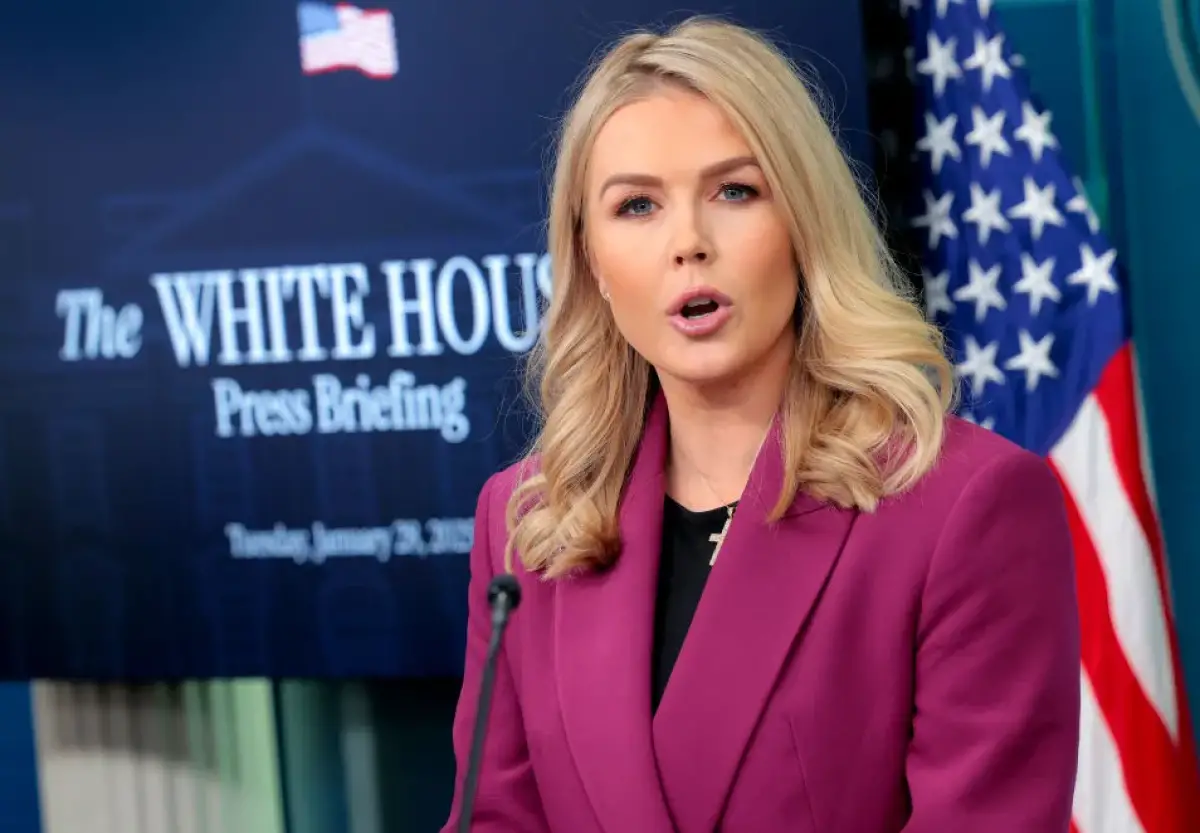White House Press Secretary Karoline Leavitt found herself in the spotlight on Monday when CNN’s Kaitlan Collins grilled her about billionaire Elon Musk’s government status. In a brief but pointed exchange during a press briefing at the Oval Office, Leavitt fielded questions about whether Musk, a prominent Trump ally, holds a security clearance and what his designation as a “special government employee” truly means.
Collins began by asking, “Can you confirm that Elon Musk is a special government employee? And what kind of security clearance does he have?” Leavitt responded, “I can confirm he’s a special government employee. I can also confirm that he has abided by all applicable federal laws. As for his security clearance, I’m not sure, but I can check back with you.” When pressed further on whether he had passed a background check, she simply reiterated her uncertainty: “I don’t know about the security clearance, but I can check.”
This terse exchange left many viewers wondering about the details of Musk’s government affiliation. CNN later reported that Musk’s status as a special government employee means he is neither a volunteer nor a full-time federal employee. An anonymous source even claimed that Musk had been granted a “top-secret security clearance.” These reports have only added to the mystery surrounding Musk’s role in government operations.
Musk himself has been vocal on social media about his contributions, and his involvement with the federal government extends beyond mere commentary. As the head of the Department of Government Efficiency (DOGE), he has made headlines for his aggressive efforts to root out waste in federal spending, often drawing comparisons to his outspoken political allies. His high-profile role has not only reinvigorated discussions about government efficiency but also stirred controversy regarding his relationship with national security protocols.
Adding further intrigue to the situation, Leavitt’s responses on Monday were a clear attempt to steer the conversation away from any potential controversy surrounding Musk’s clearance. When asked if anyone on Musk’s team had received a security clearance, Leavitt again maintained, “I don’t, no, but I can check on that for you.” This reluctance to offer definitive answers has fueled speculation among political pundits and social media users alike. Some critics argue that such evasive answers only underscore the opaque nature of Musk’s relationship with government oversight.
The discussion around Musk’s clearance is just one facet of a broader narrative about his integration into governmental functions. Earlier, CNN had highlighted that Musk’s designation as a special government employee places him in a unique position—he is not a full-time federal employee, yet he is not a volunteer either. This ambiguous status has sparked debates on whether someone with his level of influence and background should be subjected to the same rigorous background checks and security protocols as traditional federal employees.
Adding context to the matter, CNN guest and attorney Arthur Aidala recently argued that Musk’s contributions to the country, such as his role in space exploration, might justify a different standard. “He’s gotten us into space and brought us to the moon,” Aidala remarked during a segment, implying that his track record could warrant a more relaxed approach regarding background checks. Musk has repeatedly defended his actions; in January, he vowed to bring home stranded astronauts from space and criticized the Biden administration for delays in such rescue efforts. According to Musk, President Trump personally requested his help in rescuing astronauts Butch Wilmore and Suni Williams—an anecdote that has been widely circulated.
These narratives reveal a complex web of political, administrative, and security-related issues. While critics of the Trump administration argue that Musk’s involvement is yet another example of cronyism and politicization of government agencies, supporters see it as a bold move to bring efficiency and accountability to federal operations. Leavitt’s measured responses during the briefing suggest that the White House is keen to maintain a degree of control over these narratives, even as questions about transparency persist.
This latest exchange is emblematic of the intense scrutiny faced by the current administration, where every word and pause is dissected by both the media and the public. Leavitt’s attempts to deflect questions about Musk’s clearance have not quelled the speculation; instead, they have added another layer to the ongoing debate over the role of influential figures like Musk within the government.
As these discussions continue, it is clear that the issue of security clearances and special designations remains a hot-button topic. With high stakes in national security and public trust, any ambiguity in how such matters are handled is bound to attract both support and criticism. Whether Musk’s role will eventually be clarified through more transparent disclosures or remain shrouded in mystery is a question that only time will answer.
For now, the conversation initiated by Leavitt’s press conference continues to dominate headlines, highlighting the ongoing tension between media scrutiny and executive discretion. As the public demands clearer answers about the inner workings of the federal government and the status of its high-profile figures, both supporters and detractors of Musk eagerly await further clarification.

